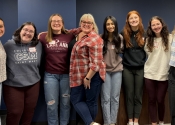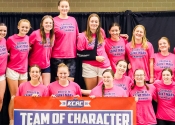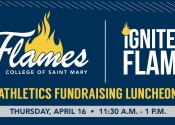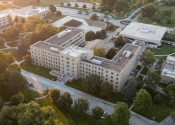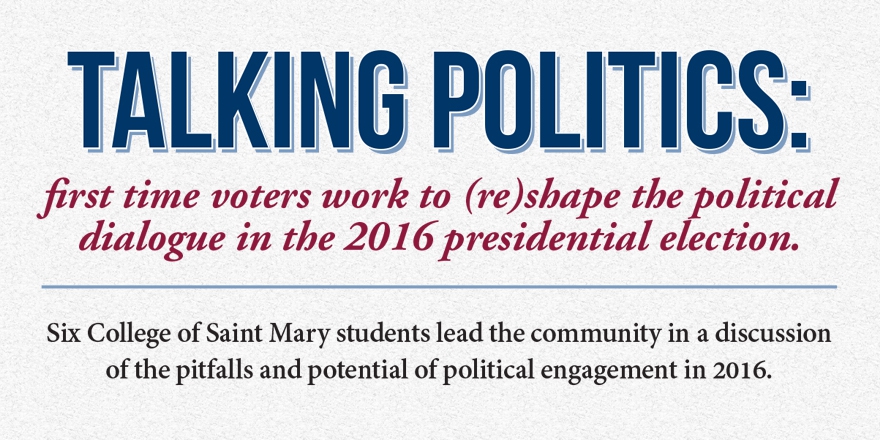
Student panel discussion to focus on divisive language in 2016 presidential primaries & caucuses
Omaha, Neb. – It may be obvious, but the dialog in the 2016 presidential primaries and caucuses has produced a lot of – strong statements. But it’s not always so obvious what the effect has been on the public, or what can be done to counter it.
College of Saint Mary’s Campus Ministry and Service Learning will present Talking Politics: Political Rhetoric in the 2016 Presidential Primaries and Caucuses on Thursday, April 28. The open-to-the-public, student panel discussion will explore those questions and other issues, says Dr. Kristin Mattson, professor of political science and director of CSM’s service-learning program.
“The political rhetoric in the 2016 presidential primaries and caucuses has been notably divisive,” says Mattson. “This language of exclusion has implications for citizen support of and engagement in the political process. It’s working to cement differences within rather than unite the increasingly diverse American citizenry.”
She adds that a college is a perfect place to hold such a community dialogue. And that students are a good choice to lead the discussion.
In 2012, the National Task Force on Civil Learning and Democratic Engagement released The Crucible Moment, says Mattson. The document highlighted the “nation’s anemic civic health” and called on higher education to prepare students for civic engagement.
The main topics of discussion will be the effect of the rhetoric on the general public, especially first time voters. “Has the language of exclusion prevented young voters from taking part in the process,” asks Julie Christensen, directory of campus ministry. “Has it compelled them to become more involved?”
Mattson wants to be clear that the event is a community discussion, not a debate.
“While debate has its place in politics, solutions to our community’s pressing problems are more likely to be created through dialogue,” she says. “Bringing a diverse group of students together to model the dialogue process and welcome the community into the conversation has potential to create pathways to real and reasoned change.”
The student panel members represent various cultures and faith traditions. The students will discuss how the political dialogue has affected their engagement in the 2016 political process. After the panel discussion, audience members are invited to add their comments and observations to the dialogue.
Panelists will guide a discussion towards steps we might take as a college, as a community and as political leaders to build a more inclusive and responsive American politics. A light lunch and networking will follow. For more information, email kmattson [at] csm.edu.






